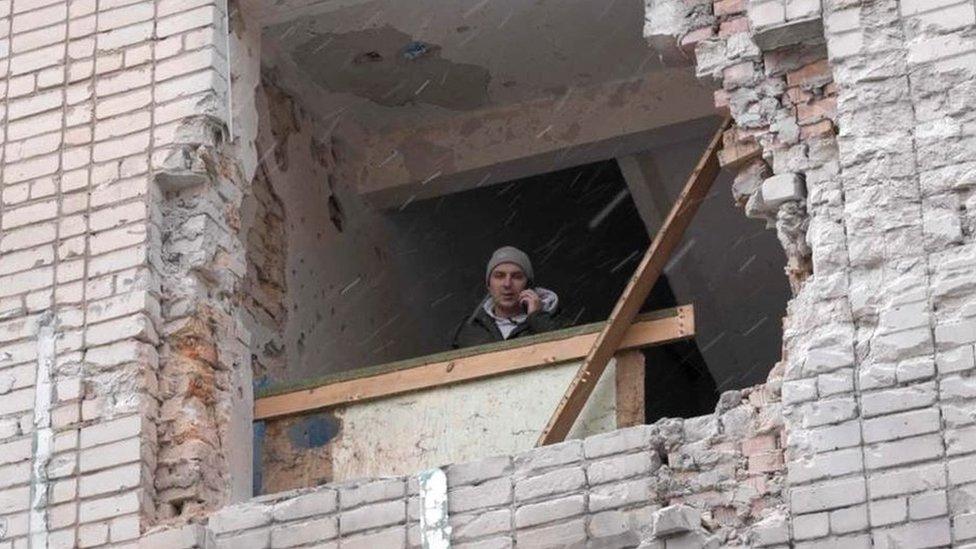Ukraine war: Pictures of war intensifying in third week
- Published
It's already week three of the Russian invasion - and the scenes below are becoming all too familiar across Ukraine.
Cities across the country often wake up to the haunting call of air raid sirens and skies filled with traces of rockets, missiles and artillery strikes, like this one from Baryshivka, east of the capital, Kyiv.
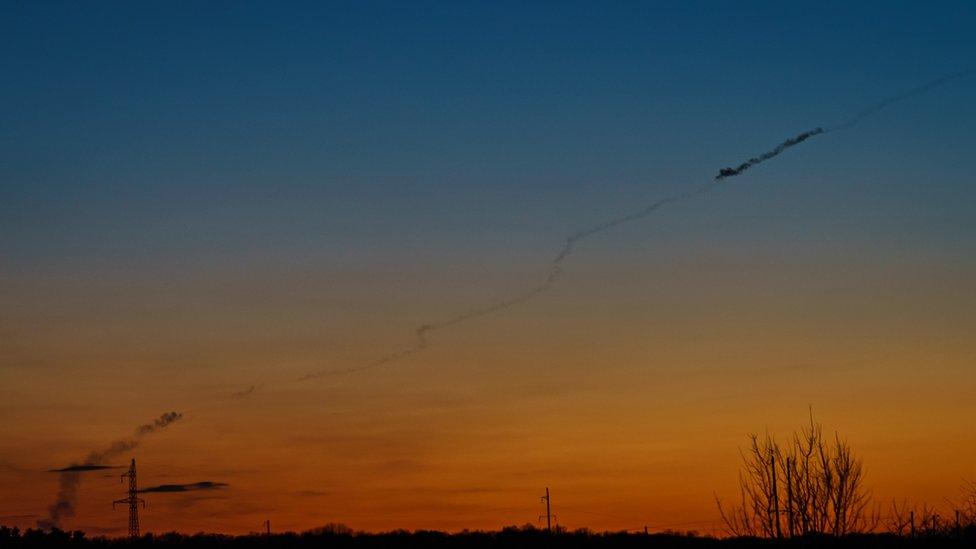
Russia may have been slow to advance inside Ukrainian territory, but the shelling has been intense.
The Russians say they are hitting military targets - the scene below is from a storage facility in Kalynivka, in the centre of the country.
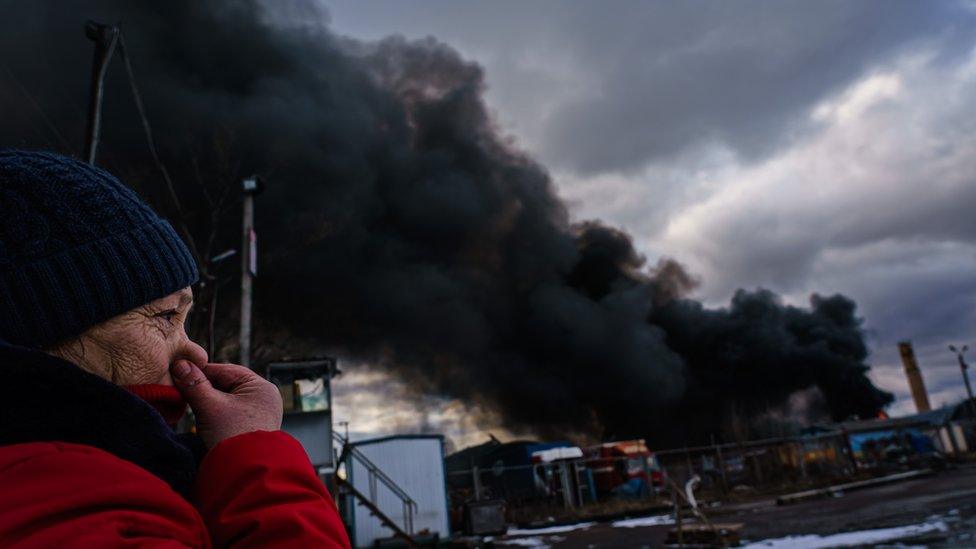
Ukrainians, however, say the occupying force has been aiming for civilian targets indiscriminately.
One of the worst-hit cities has been Kharkiv in the east.
The BBC's Quentin Sommerville says entering the centre of the city is almost like entering another world. Few neighbourhoods have escaped some kind of damage.
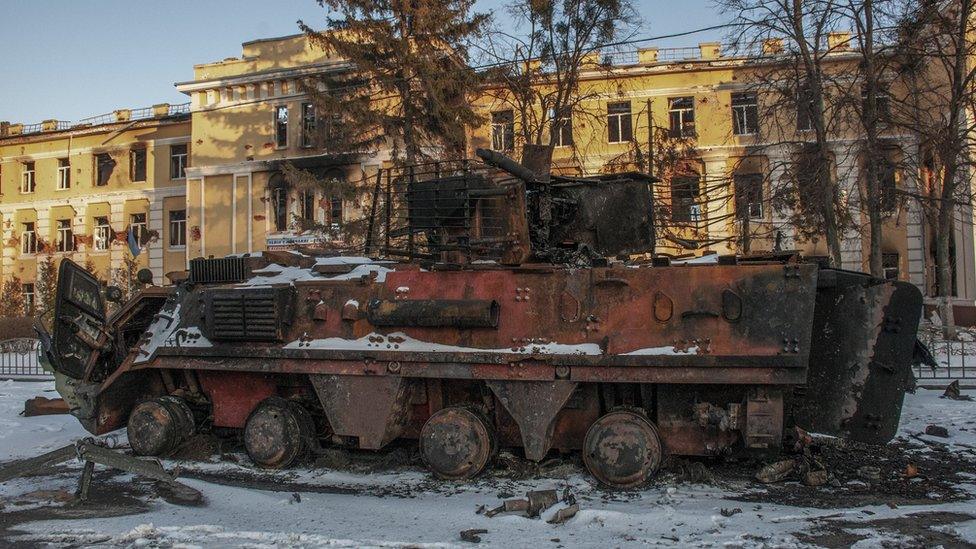
The relentless Russian shelling has meant that most of the 1.5 million population has fled.
Early in the mornings, queues can still be seen at pharmacies, banks, supermarkets and petrol stations, as those who stayed behind stock up on supplies, our correspondent says.
A huge logistical and humanitarian effort is going on behind the scenes to keep Kharkiv running - these volunteers below are preparing food for the defenders, and others who may need it.
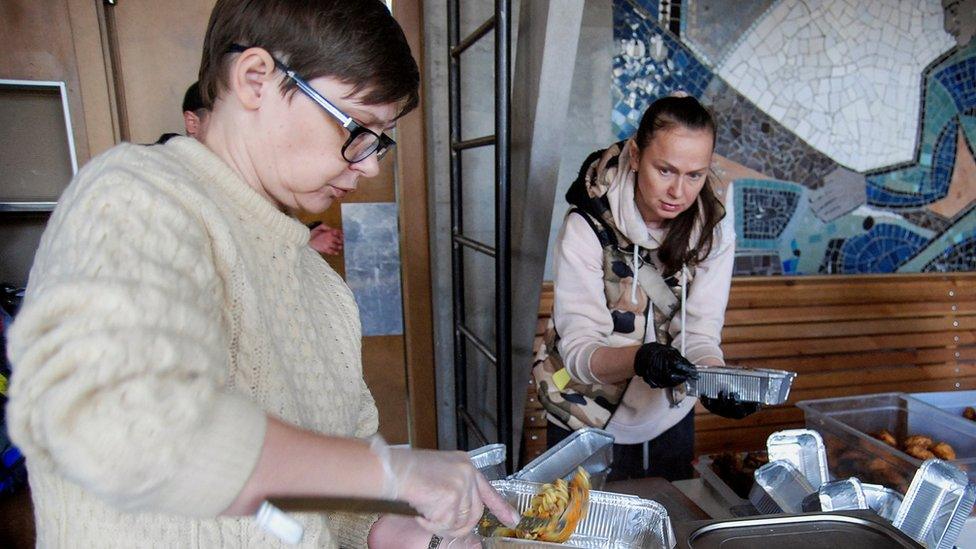
And the toll is mounting by the day. Even though official figures are patchy, thousands are believed to have lost their lives or sustained serious injuries, many losing limbs in the shelling.
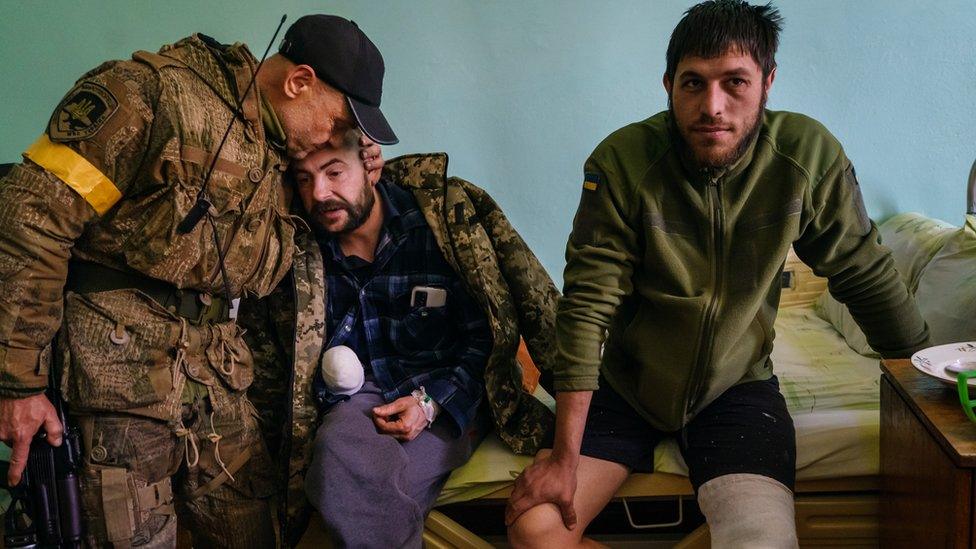
The situation is said to be dire in the port city of Mariupol, which has been surrounded by Russian troops for nearly two weeks.
Authorities say nearly 1,600 have died as a result of Russian shelling alone - and they are unable to collect the bodies amid unrelenting Russian firepower to force it to surrender.
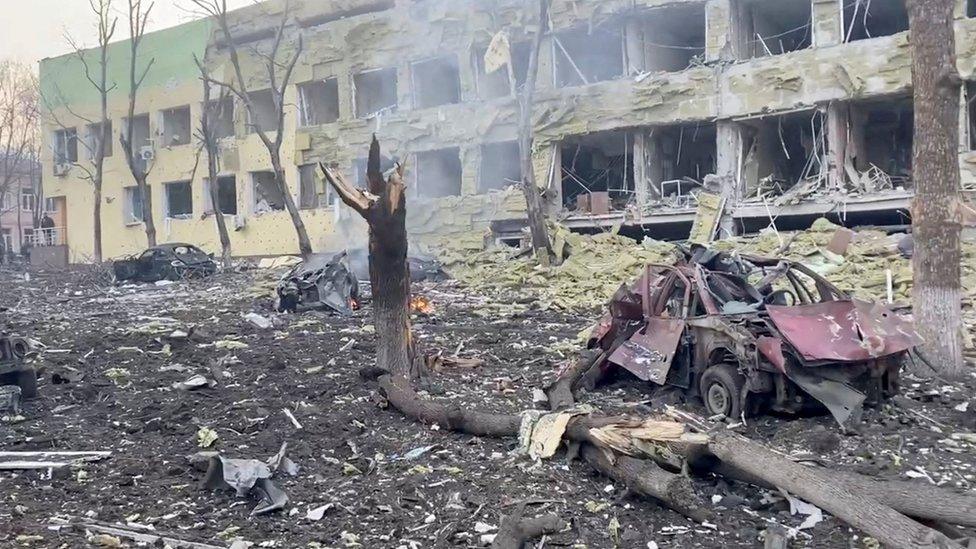
Not far from Mariupol, another battle is being waged to conquer the city of Mykolaiv. Cluster bombs have been used, but the locals are resisting.
However, Mykolaiv's governor Vitaly Kim is loath to celebrate prematurely, telling the BBC's Andrew Harding, "We are winning this fight, but not this war."
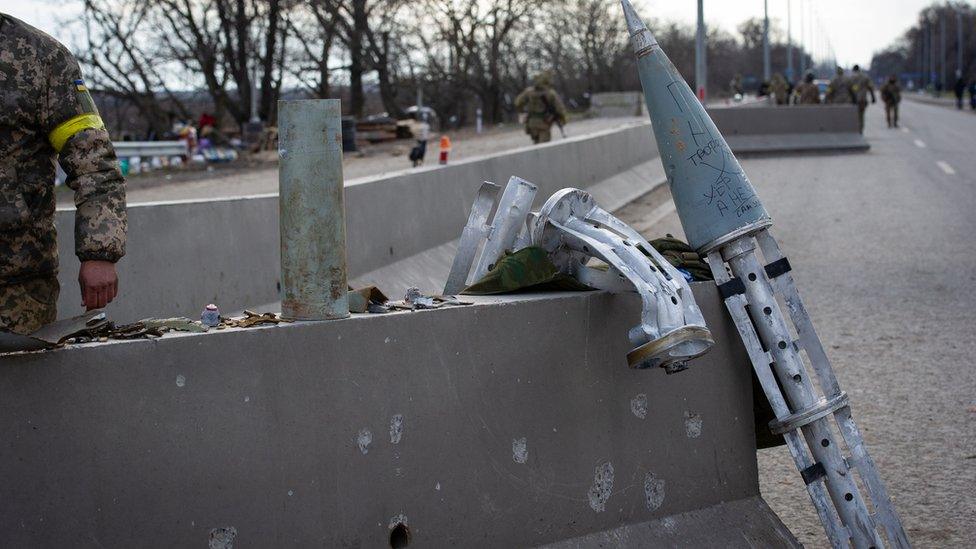
Dnipro was hit for the first time on Friday - a day when Russia expanded its strikes from east, where the city lies, to the west.
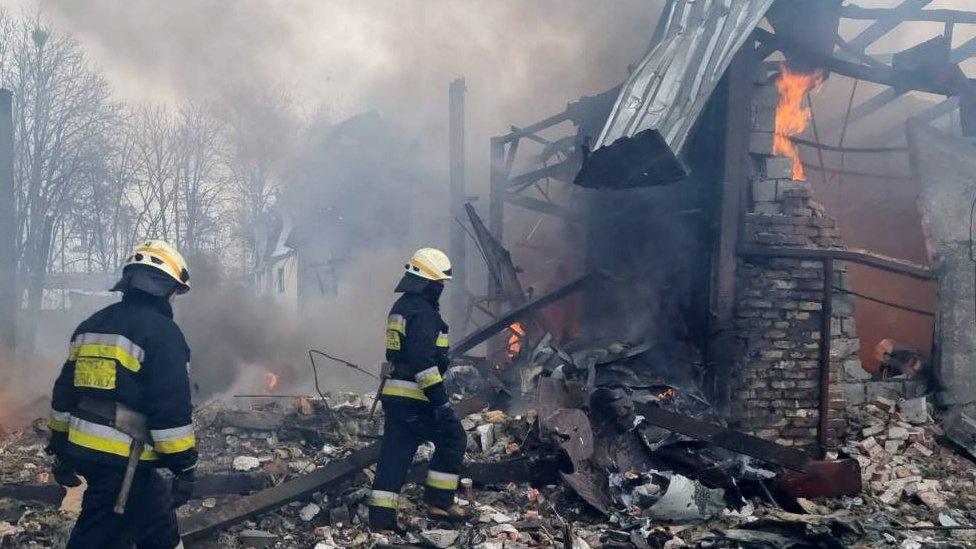
The capital city is bracing for the worst. Ukrainian forces have been holding the Russians back for days on the outskirts.
And in Kyiv city itself, volunteers have been preparing - digging trenches and building barricades. The city is turning into a fortress, says our correspondent there Jeremy Bowen.
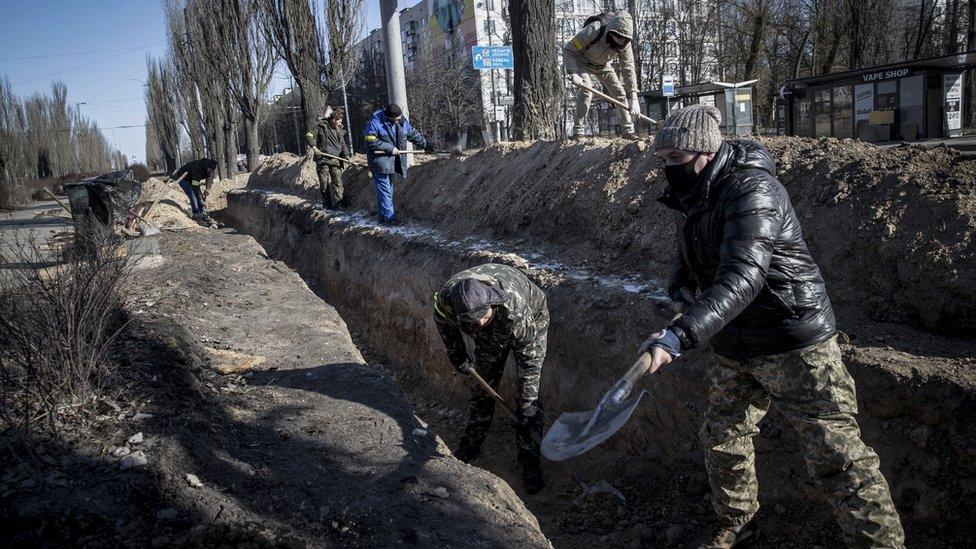
Others are trying to contribute to the effort. Field kitchens have sprung up in various neighbourhoods.
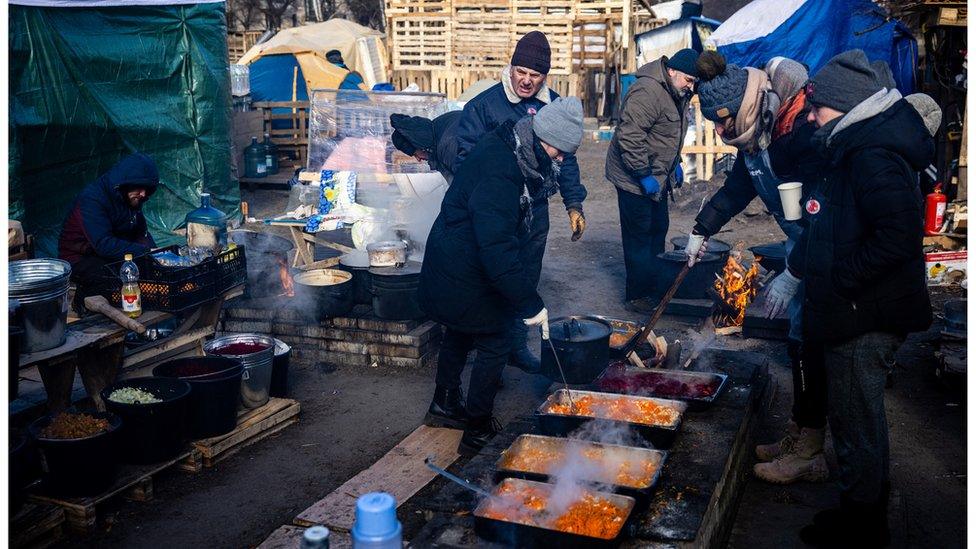
However, for many Ukrainians - women and children only, as men have to stay behind to fight - the scramble to flee has become the norm. More than 2.5 million people have now left the country.
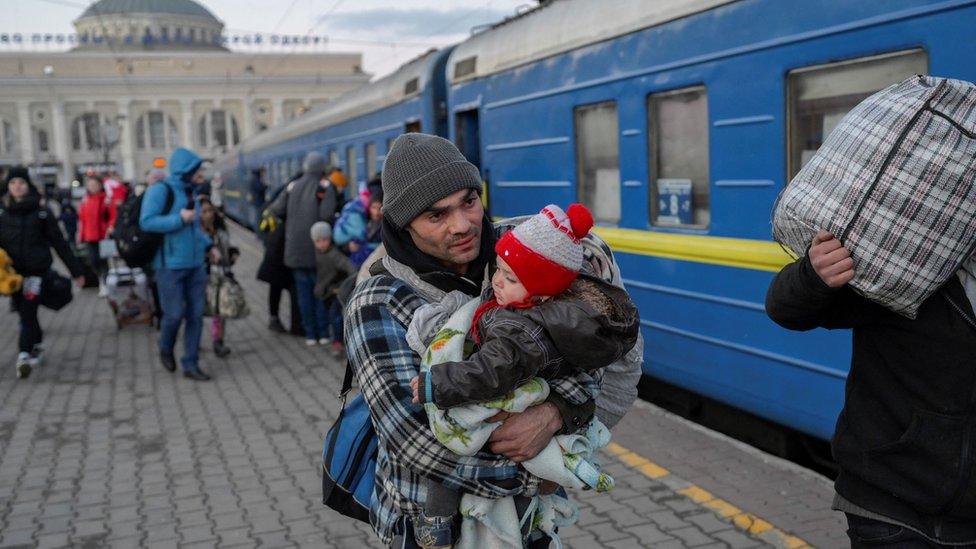
The shock is all too real. Here in Moldova, Smadar the Clown tries to lighten the mood with this mock interview with a young Ukrainian girl at a refugee centre in the country's capital, Chisinau.
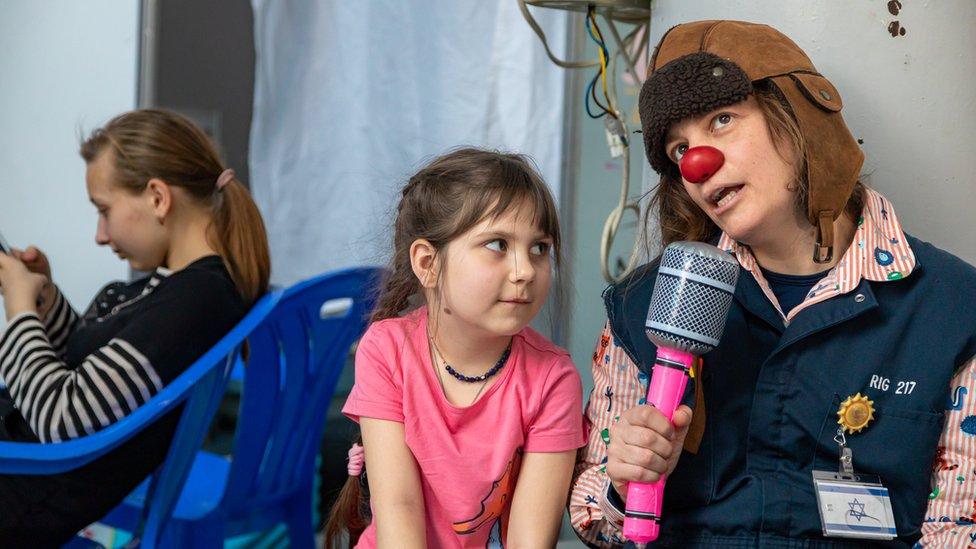
Moldova clown
Culture is randomly a victim of the war, too, as seen in too many conflicts this century alone. The picturesque western city of Lviv has been left untouched, so far.
But it is preparing - the checkpoints on main roads and the soldiers on the streets can be seen by all - but some preparations are taking place behind closed doors, says the BBC's Joel Gunter.
In Lviv's galleries, museums and churches, a huge operation is under way to safeguard the city's cultural heritage, he says.
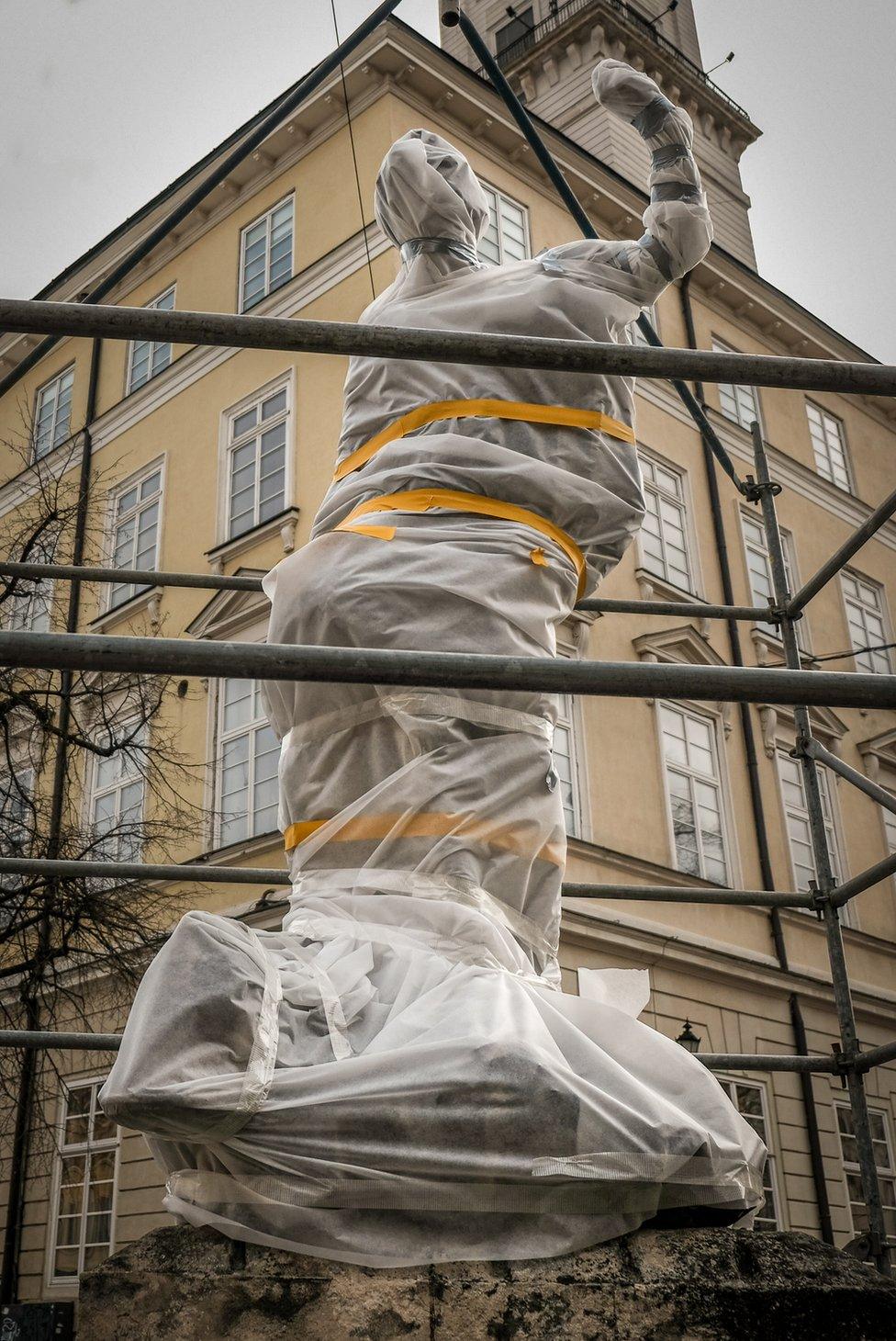
Related topics
- Published11 March 2022
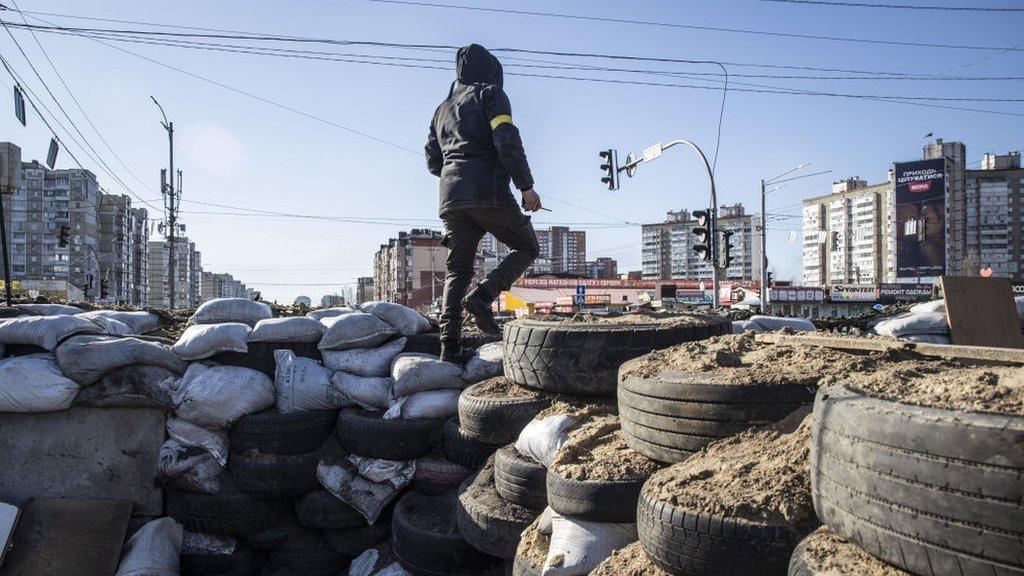
- Published12 March 2022
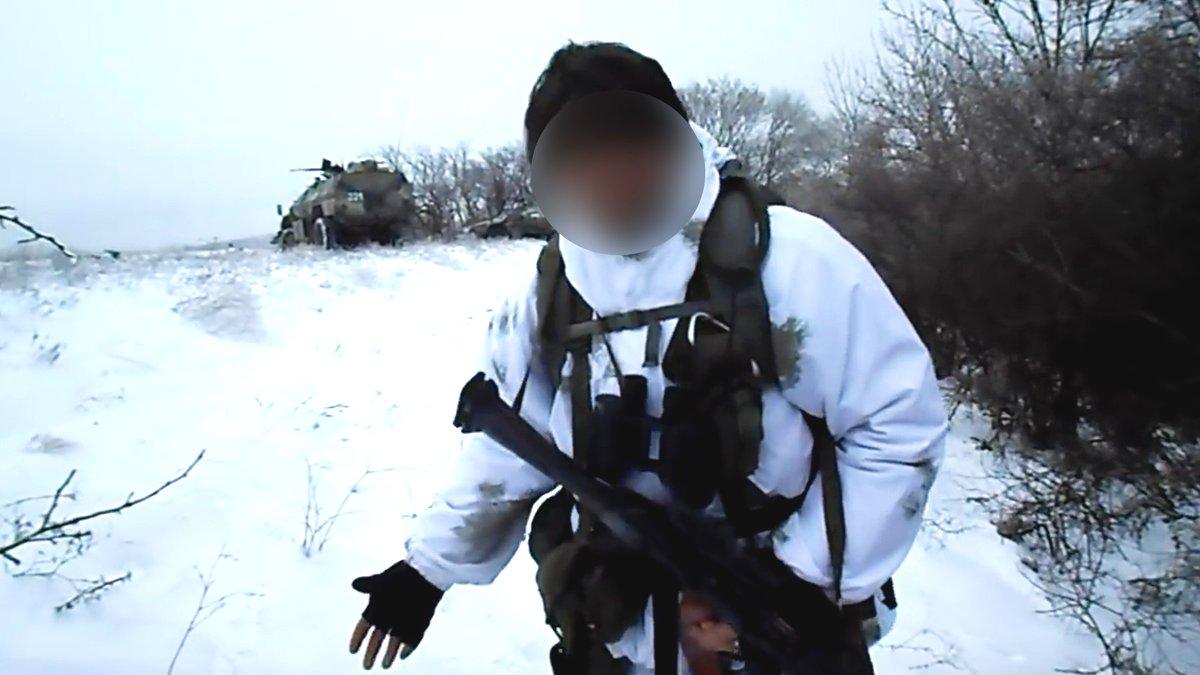
- Published12 March 2022
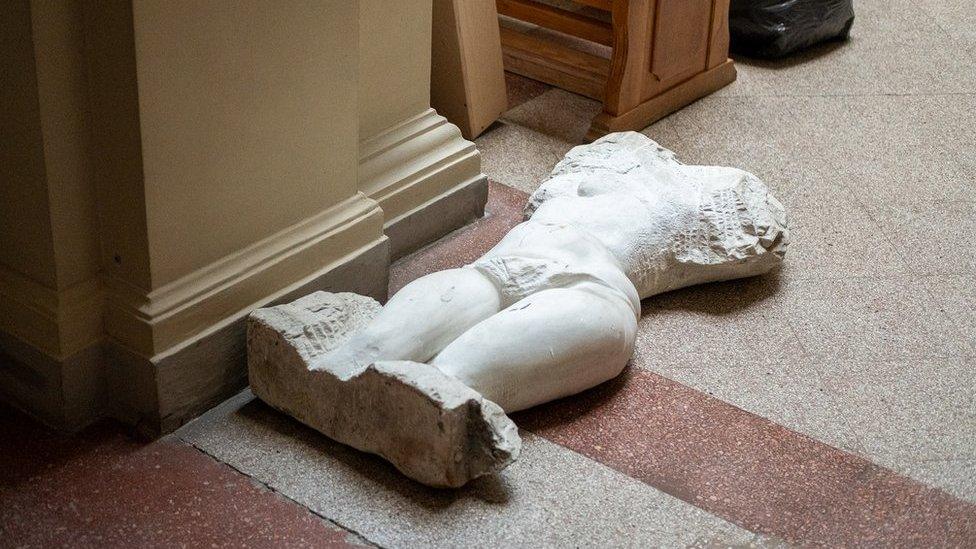
- Published12 March 2022

- Published12 April 2022
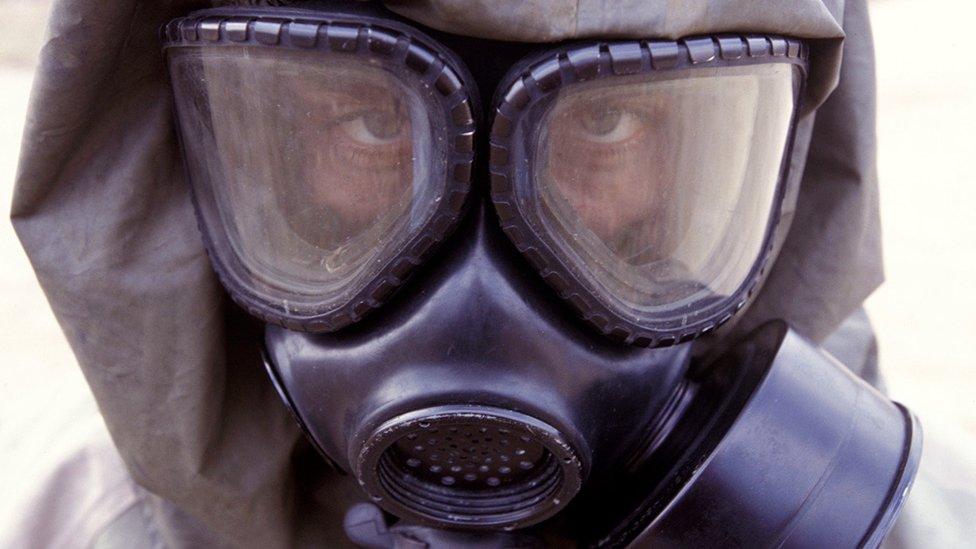
- Published11 March 2022
